Romania Mobility
They are the cybermentors for the first mobility:
Poland Mobility
Cybermentors for second mobility: Lorena and Paul
Turkish Mobility
Cybermentors in Turkish mobility presenting their work about Cybersecurity threats.
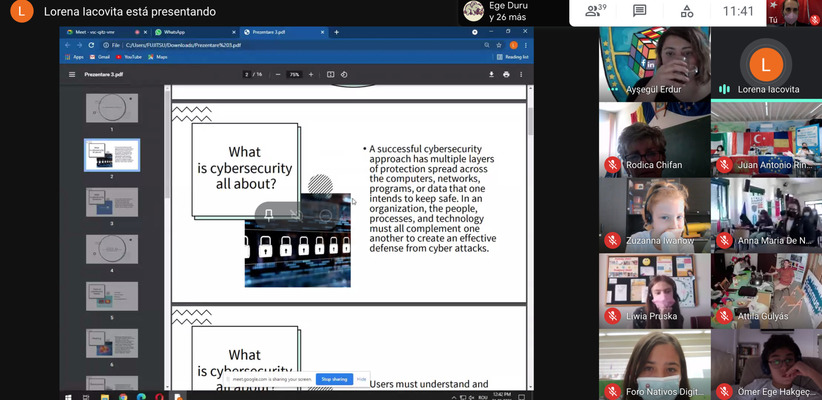
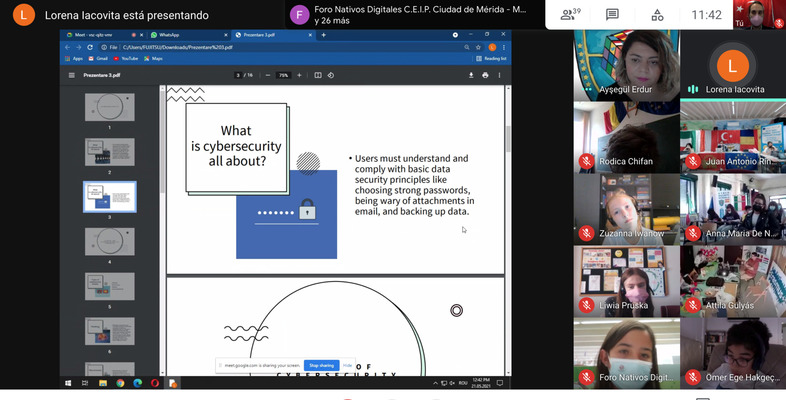
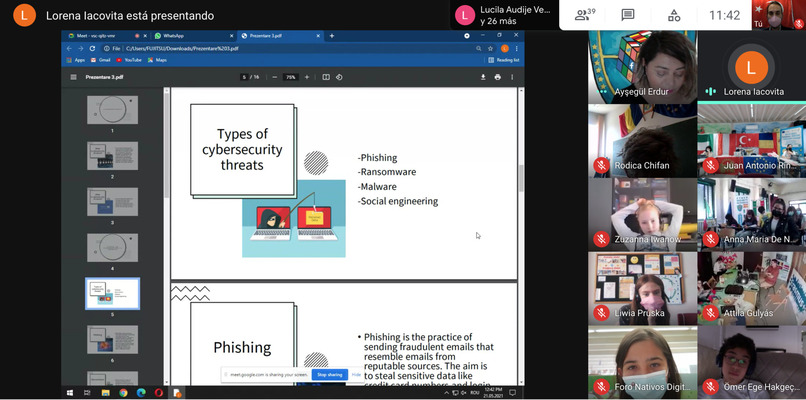
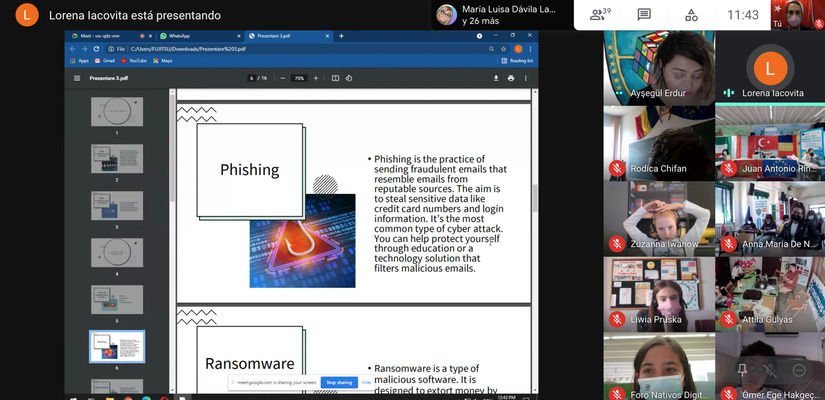
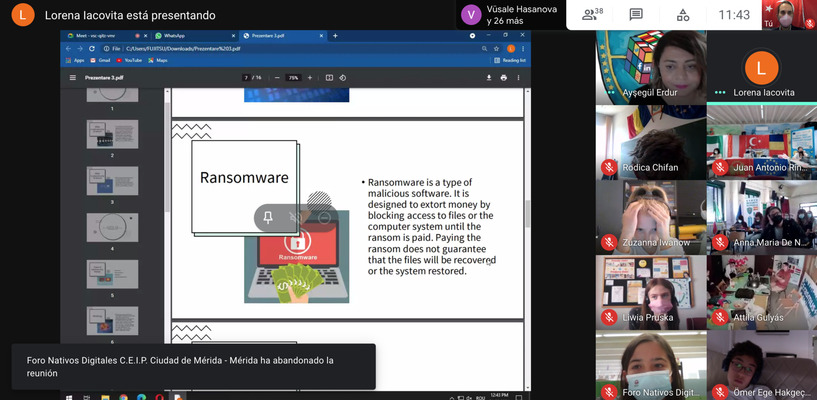
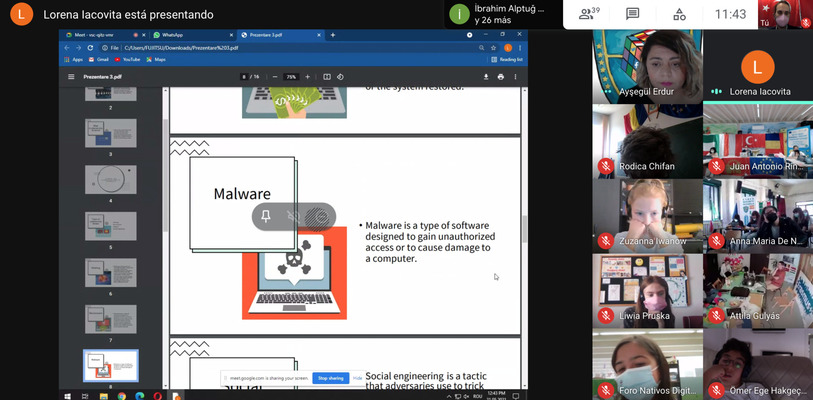
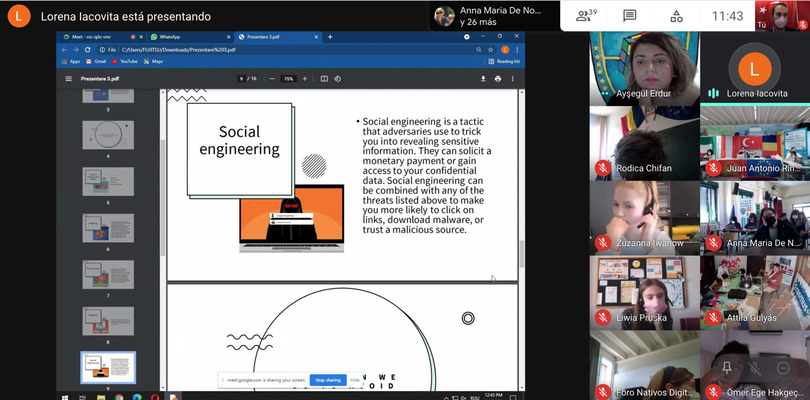
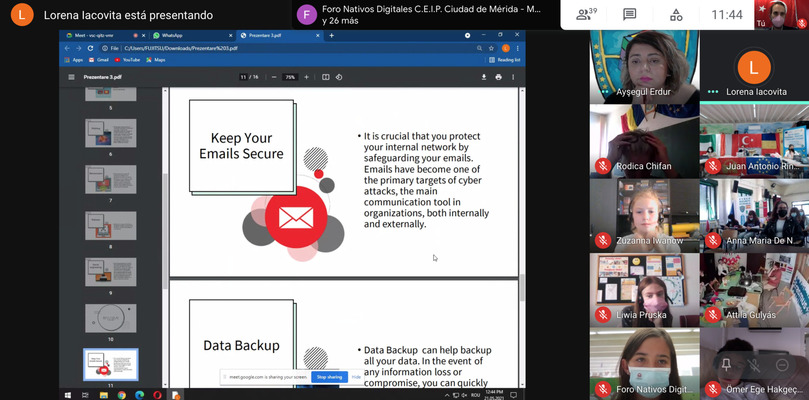
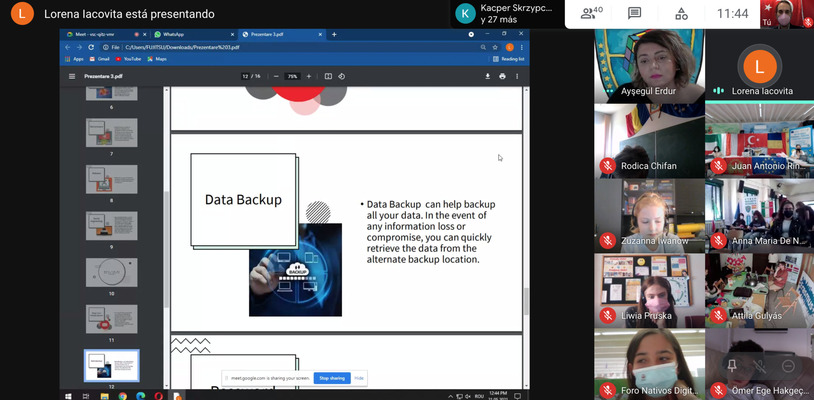
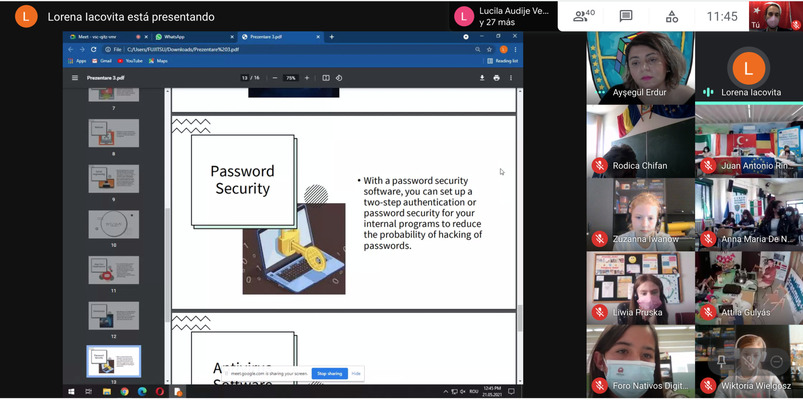
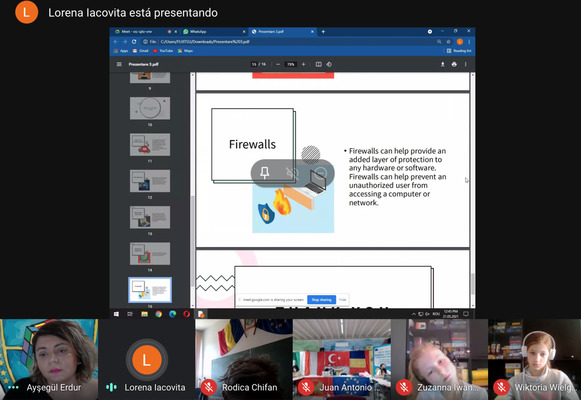

This is our online site for our Erasmus+ KA229 project. Its main objective is to exchange good practices among six European countries in matters of pupils' security and privacy on the Internet.
Romania Mobility
They are the cybermentors for the first mobility:
Cybermentors for second mobility: Lorena and Paul
Cybermentors in Turkish mobility presenting their work about Cybersecurity threats.












Secondary School "Luigi Antonelli"
1 B: GIOVANNI MELCHIORRE - VIOLA BRAVIN -GIULIA IERVESE - FRANCESCO SANTORI
1 F: CAMILLA DI FELICE - CARLO MARIA CAPECE - NICOLA RADU - ANITA PATRICELLI
A PREVENTION PROGRAMME
The Club of the Braves is the name of a tale written by an Spanish author called Begoña Ibarrola.

Image of Begoña Ibarrola in Planeta de Libros
Many schools have been inspired by this story to develop a peer violence prevention programme based on the dialogic model of conflict resolution. We recommend reading the following article.
The teaching team of CEIP. Ciudad de Mérida have made a specification of the story and the programme to the educational context of all organizations.
This is the motivational video told by Eva Moriel and her daughter Valeria. We hope you enjoy it!
Assemblies are a perfect dialogical medium for the creation of standards that represent our schools. The following document explains the enormous potential of this practice.
This presentation made for our students briefly explains what an assembly is and what are the rules we have to respect. In the speaker's notes the content of each slide is explained in a little more detail. At the end of the presentation, students are asked to creatively elaborate the rules and display them in a visible place in the classroom, such as the Erasmus corner of the classroom.
For young learners who may not be familiar with the term cyberbullying, Fethiye Secondary school has prepared a lesson plan to teach pupils to introduce the term and help them to identify when they are cyberbullied. At the end of the lesson, they are assigned to create posters, booklets, presentations, etc based on the most common cyberbullying plan.
You can download the lesson plan if you have younger learners, too.

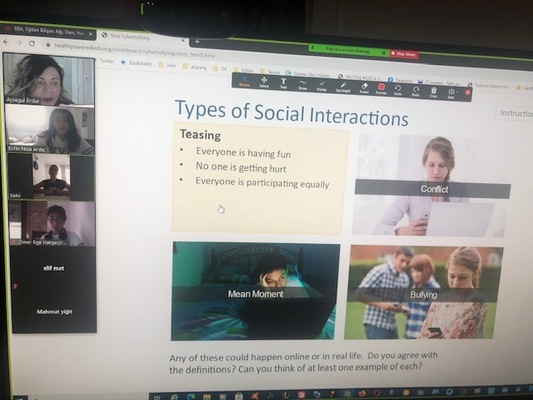

Young learners work:
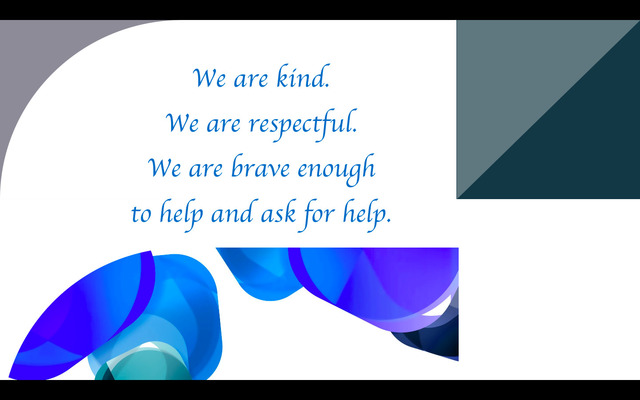
Monday, 12 April 2021
In our case, we are describing the whole process we are following for the elaboration of the norm that helps to eradicate any type of violence in the project's blog. Next, we describe in this important page of our TwinSpace.
Once we have read the book and/or watched the video of "The Club of the Brave", each class has creatively worked on the characters and scenes of the story.
In the case of the 5th D and 5th E classes, the pupils have chosen to draw pictures which we have captured in a Google presentation and which we share below. We hope you like the final result.
The works have been presented in the cybersecurity class we hold on fortnightly Mondays. The rest of the groups will present their final products in this or future publications.
Monday, April 2021
During this session the students presented their work.
In 5º C have read the story of Allan and Samuel. The Club of Braves was a grateful experience. The studens argue about the aspect of the story, for that activity we used the assembleis.
The assemblei was set in our classroom and they use their tools and skills to express their opinions about the book. Our aim: to be emphatic, respect the opinions and to think about the importance of be brave and tell the truth and what is happening always.
After that the students create their own ilustrations. Below you can see our The Club of braves poster.
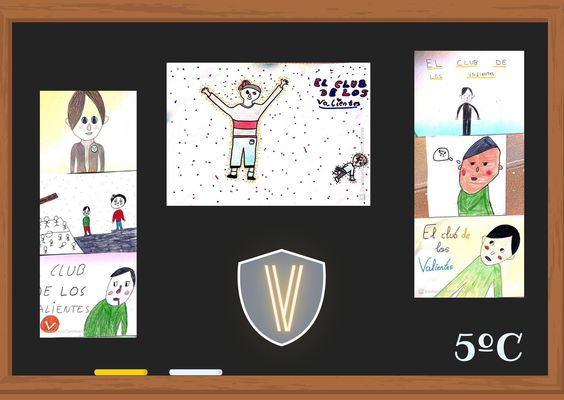
Monday, 17 May 2021
Rules of the Assembly
Assemblies are a resource for learning and practising democracy. It is the ideal space to see differences in a positive way, to appreciate everyone's intelligence and to show solidarity with each other.
In our case, we are going to carry out this activity to reflect and debate about coexistence in our school, because we want a school free of any kind of violence, especially cyberbullying. We want a school like Alan's, from the Brave Club, where all the children are brave.
Assemblies are a place where students and teachers express our opinions without fear and on an equal footing. We dream of the school we want: An optimal school in which we are all committed to achieving it.
The assembly has an institutional significance, that is to say, everything we talk about and reach a consensus in it will reach all areas of the centre.
Assemblies are important because:
In order to carry out this practice we followed some rules that our students have been working on during the last two weeks.
The "5º E" group has made a video which is shown below.
THE UPSTANDERS
Bullying usually happens in front of an audience. This could be in front of a large crowd gathered in the school playground or just a couple of friends in a group chat. These onlookers – or ‘bystanders’ – can have a huge impact on how things turn out for the person being bullied.Upstanders are courageous and compassionate and believe in doing something about the issue of bullying. They lead by example and help others to recognise ways to get along and be supportive and kind to each other. Putting an end to bullying is everyone’s responsibility.
HUNGARY
Cyberbullying
We decided to integrate this topic to our existing models and good practices of fighting against cyberbullying and inappropriate behavior in school. These are the non-violent communication, peer mediation.
When we processed the video about the Club of braves, we were on distant teaching, so it was not easy to follow and understand the Spanish text translated into English, and to motivate the students in general.
On another online class we integrated this topic into a workshop in literature. We read and talked about a Hungarian short story (Miklós Vámos: The slap), then we tried to understand the roles and motivations of the novel's main characters (victim, aggressor, bystanders).
Finally we played some online games and tests to systematize the phenomenons in a cyberbullying situation.
Here is the sketch of this lesson:
These are the online games for practicing:
https://learningapps.org/watch?v=paswtrjwa18
https://learningapps.org/display?v=pazkz48w521
https://learningapps.org/display?v=pocmbe1tt21
And a screenshot of the workshop:
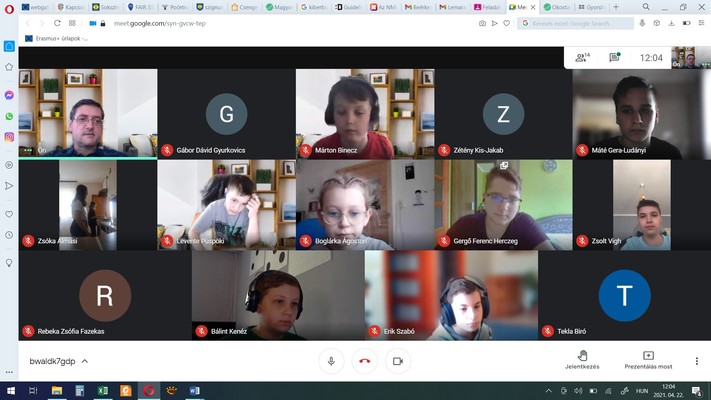
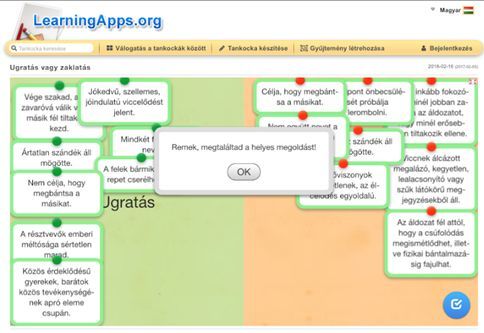
During the 20/21 academic year, the students themselves design the questionnaires on the participating countries: Hungary, Italy, Poland, Romania, Spain and Turkey. Below we share the links so that our partners can use them.
LINK TO THE DOCUMENT CONTAINING KAHOOTS LINKS
This is the presentation with photos and videos of the experience.
ADVICE TO FAMILIES
During these two years our families have received several talks on the project themes. We invite you to follow this TwinSpace page to read everything we have learnt, thank you very much!
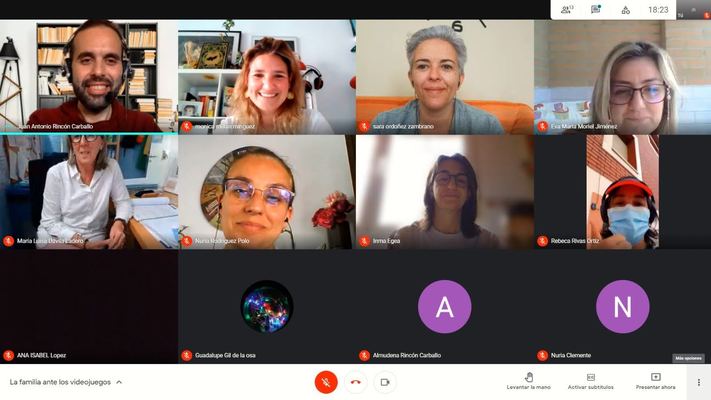
Course session 20/21 on video games
Dear friends: We have created leaflets of our Erasmus+ project to make it more widely known.
Some of our students have shared them with their families and have taken a photo of themselves which we share in the following presentation which we will be updating frequently.